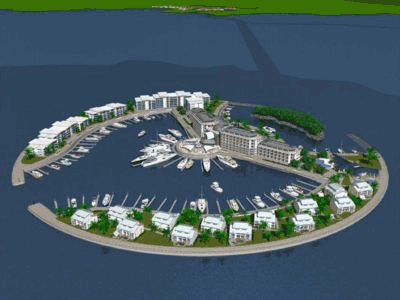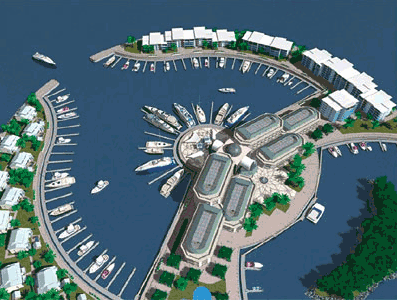
|
||||||||||||
|
||||||||||||
|
||||||||||||
|
||||||||||||
|
||||||||||||
|
||||||||||||
|
|
||||||||||||
|
|
|
|
| Proposed Development of "Super-marina" near Phuket - an Environmental Disaster? | |
A proposed development of a man-made island for the development of a marina for super-yachts owned by the mega-rich immediately sets the environmental alrm bells ringing. Developer Gulu Lalvani plans the 6.6-billion-baht marina, luxury hotel and villa complex on reclaimed land about three kilometers off Phuket’s east coast in Phang Nga bay - an extensive area of mangroves and mudflats. |
|
|
|
The developers are said to be "aware of the obstacles that will need to be overcome to make the project a reality, including the need to get public approval for a massive marina project in an area not far from where environmental activists have been actively protesting against the construction of a pier", however, they don't seem to be aware of the environmental problems the development may cause which have prompted the protests against the pier. Wildlife Fund Thailand coordinator, Thanu Nabnien expressed concern that a man-made island could harm the ecology of Phang Nga Bay, which he described as an important part of Asia’s natural heritage. The project would be reminiscent of “The Palm” and “The World” projects off the coast of Dubai, and was inspired by the recent visit to Phuket by Bill Gates. The Govenor of Phuket has declared that the project seems to be in line with the province's policy of promoting marine tourism but said that its potential impact on the environment and local communities would have to be examined carefully. Tourism and Sports Minister Suvit Yodmani has welcomed the idea, outlining that it could promote a good image for Thailand’s tourism and that investors from many countries including Saudi Arabia, Russia and India were interested in investing in such projects in Phuket. Phuket Tourism Association chairman Maitree Narukatpichai said he would not object to the project as long as it did not harm the environment and local ways of life. However, it is hard to see how a project such as this would not seriously affect the environment and local communities in many ways. The island itself would almost certainly considerably alter wave action in the area, increasing the strength of the force towards certain regions which would increase erosion, whilst at the same time decreasing deposition of particles in other regions. Both of these outcomes would seriously damage mangroves and mudflats, both of which provided protection against the effects of the tsunami in 2004. Any arguement that local communities would benefit from the development are likely to be false. Mangroves are vital as fish breeding grounds and any degradation of these would deprive local communities of part of their income. Additionally, a large proportion of tourism money would be diverted towards this new development, reducing income for small businesses on Phuket island. Only the richest investors will be able to operate on this new island and the only jobs available for local people would be McJobs - "an unstimulating, low-paid job with few prospects, especially a job created by the expansion of the sevice sector" (Oxford English Dictionary), effectively increasing the control that rich business people from overseas and Thailand's elite would have over local people. This project
sounds like the antithesis of sustainable development as outlined
by Agenda 21 of the United Nations Conference on Environment and
Development (UNCED) held in Rio de Janerio, Brazil, 3 to 14 June
1992. |
|
| Nick Upton, 29th May 2007 using information in the Phuket Gazette and United Nations website. | |
|
|||||
| Support thaibirding.com by using the above websites. | |||||


Copyright © 2004-2007 thaibirding.com. All rights reserved.


